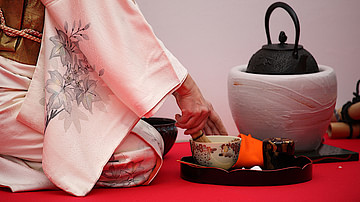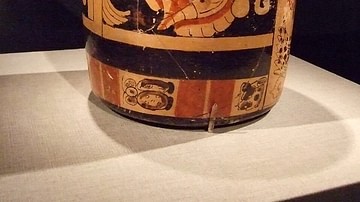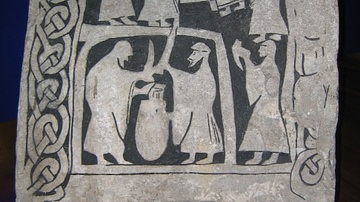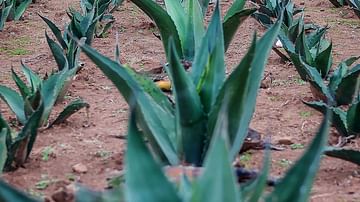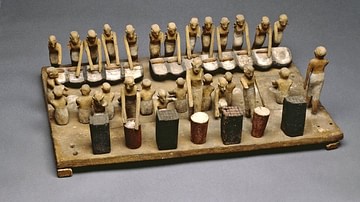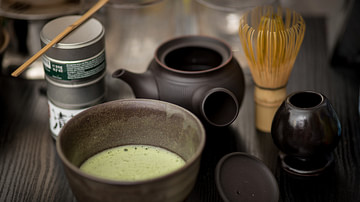Many of the drinks we enjoy today such as wine, beer and tea have a very long history indeed and this collection examines some of those beverages and their cultural importance not just in daily life but also in rituals, ceremonies and trade. It is interesting to note a frequent association in antiquity between intoxicating drinks and gods, quite often unruly ones. Even tea has its origins in the religious practices of Buddhist monks. Another point of interest is the lasting effect these drinks have had on cultures in different regions with wine, tea and beer remaining persistent marks of cultural identity in the Mediterranean, East Asia and northern Europe repsectively. The following articles will help to explain just why such drinks are more popular than others in certain parts of the world today.
Wine was a common, relatively cheap, and everyday drink in both the Classical Greek and Roman cultures. It was drunk on its own and with meals. The Greeks diluted their wine with water (1 part wine to 3 parts water), although the Macedonians scandalously drank theirs neat. This dilution helped prevent excessive alcoholism, which was (at least by the elite) considered a trait of 'barbarian' foreign cultures and which was widely parodied in Greek comedy plays. Drunkenness also crops up in many Greek myths as an explanation for terrible and uncivilised behaviour such as the fight caused by the inebriated centaurs at the wedding of Perithous.


